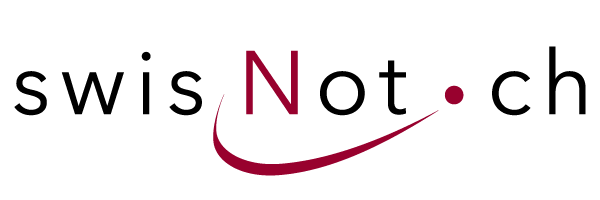Taxing of legal persons
Philippe FRESARD, notary and lawyer in Berne and Manuel PIQUEREZ, notary and lawyer in Porrentruy
As far as corporate taxes are concerned, there are three major types: for operating companies, holding companies and administrative companies.
Operating companies
Operating companies pay taxes on capital and profits. Taxable net profits are calculated on the basis of the income statement (profit and loss account) plus corrections set out by the law (deduction of losses from previous financial years, costs justified by business usage, taxes paid during the financial year). On the other hand, expenses which are not at all justified for business reasons and excessive depreciations or provisions should be added to profits.
For tax profits, the scales adopted by the Confederation and cantons are in principle progressive and sometimes based on a level system. The share of profits exceeding a certain yield (i.e. the proportion between the taxable net profit and capital plus reserves) is used to determine the tax rate. On the federal level, the rate is 8.5%. In certain cantons, the progression depends on the scale of the profits. In general, a fixed rate tends to be applied on profits (around 10%).
As far as taxing capital is concerned – on the cantonal/communal level only – it covers released share capital, apparent reserves and certain latent reserves, and the share of foreign funds which has an economic impact on the capital. Tax on capital is almost always proportional and is expressed in per thousandths of the taxable capital.
A major tax risk is concealed behind so-called “indirect partial liquidation” and “transposition” operations.
Holding companies
Holding companies are either companies which, in addition to their own operating activity, have a decisive stake in other companies (mixed holding companies) or companies with the exclusive or main goal of owning stakes in other companies (pure holding companies).
Companies that own at least 20% or two million Swiss Francs of the fiscal value of the basic capital in other companies only pay a reduced federal tax on profits. This reduction is proportional to the ratio between the net yield of this stake and the total net profits of the holding company (e.g.: for net profits of one million Swiss Francs, of which 700,000 come from stakes, the reduction on the tax to be paid reaches 70%). Federal tax on profits is abolished for pure holding companies when the ratio as defined above reaches 100%.
With a few rare exceptions, cantons have similar regulations, although the systems and rates can vary from one canton to another. In particular, almost all pure holding companies are exonerated from tax on profits. In the case of mixed holding companies, tax reductions are also granted, but the conditions vary according to the canton. Holding companies, on the cantonal level, pay a tax on capital which is also reduced.
Administrative companies
Administrative or “domiciliation” companies have their headquarters in Switzerland but their business activity is carried out abroad. They also have a specific tax status. These companies have neither an operating office nor economic activity based in Switzerland. They are often companies whose purpose is to file patents. The Confederation grants no special tax cuts to domiciliation companies. However, most cantons offer domiciliation companies facilities similar to holding companies in terms of the tax on profits and on capital.
Tax relief granted to new companies
Most cantons grant tax relief to companies whose location is of economic interest and does not compete with established companies. These facilities can for example take the form of a partial or total tax exemption for a period of ten years.
Berne/Porrentruy, 30.01.09



